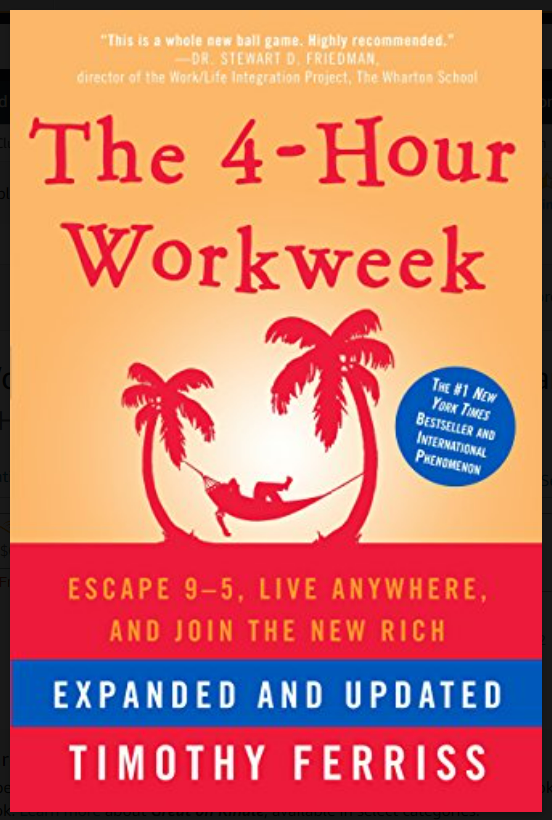It can be difficult to run a small business. It often seems like every waking moment (and some sleeping moments) are dedicated to doing something related to our business. Even when we’re not really “doing the work,” that part of the job where we’re directly earning income, there’s always something else to do. There’s always some other part of the business that need attending.

On the surface, it can seem like all this other stuff we do could fall under the title of “busy work.” It’s often the part of owning a small business that we, as business owners, hate the most. It’s hard to see any direct, tangible benefit from paperwork, bookkeeping, inventory, email, returning calls, and marketing.
But, if we stop for a moment, back up a bit and try to look at things on a bigger scale, it’s often the “busy work” that leads to “doing the work.” Without everything going on behind the scenes, we’d probably never be able to actually get out there and do that part of our job that pays the bills. We could almost say that all that busy work is what indirectly pays the bills.
It was during a recent session of “indirectly paying the bills” when my mind began to wander, as it always seems to do when I’m doing busy work. I switched my focus over to Twitter, thinking that I would just get lost down the rabbit hole for a short while before returning to my bookkeeping. I noticed in my news feed that Jim Lehrer, a fixture in American journalism for the past 60 years, had passed away this week. His passing wasn’t incredibly noticeable, after all, roughly 150,000 people die each day across the globe. The thing that struck me was that the news stories about him were all referencing his rules, a set of nine tenants that governed the way in which he did his job, which was to report the news.
(While this article isn’t directly about Jim Lehrer, the story of his life, and of Jim Lehrer’s rules, are an interesting read.)
Reading his rules got me thinking about my job as a home inspector. In the inspection industry, most of us operate under some set of laws and guidelines imposed by our home state or some national association. I would say that most of us in this business, and really in any small business, don’t have a personal set of rules that we follow. Yes, we may have some vague idea of what our ideals are and how we want to conduct ourselves, in our personal as well as professional lives, but few of us have ever taken the time to sit down with pen and paper and write out these thoughts in black and white.
So, it’s with thanks (and apologies) to Jim Lehrer, that I am going to attempt to use his rules as a foundation upon which to build the rules of my home inspection career.
1. Report nothing that I cannot defend.
It never fails that whenever I report on a deficiency in my inspection report, someone representing the seller’s side wants to argue the merits of my findings. Whether it’s the seller, their uncle who used to work for an engineer 50 years ago, their brother in law the contractor, or the electrician who did the wiring on the house, someone’s always sure that I’m wrong and they’re right.
We must always be prepared to defend our positions, as challenges will always arise. Keep yourself on the leading edge of knowledge and change in your industry so that you can always back up what you report with cold, hard facts. And having a handy reference guide in your tool bag doesn’t hurt either.
2. Inspect the house, write the report and present my findings with the care I would want if the inspection was for me.
I try to do every inspection and report just the same way that I would want someone to do them for me if I was the one buying the house. If I can keep that thought in the forefront of my mind, I know that I will absolutely be giving my client the best product that I can offer.
3. Assume that there’s always some other information about the house that I don’t know.
As inspectors, we’re paid to find things that others miss. It’s our job to expose things that someone may have attempted to hide and to discover things that no one else knows about. While it can feel empowering when we’re certain of our findings on an inspection, remember that no one is perfect. We may have confidence in our abilities, but there’s always the possibility that we’re missing a valuable piece of information that can demolish our theories and make us look like fools.
Always stay humble and allow for uncertainties. Remember, it’s always better to remain quiet and be thought a fool than to open one’s mouth and remove all shadow of doubt.
4. Assume that my client is as smart, caring and as good a person as I think I am.
There’s no quicker way to set people against us than to present the appearance that we think we’re better than they are. Talking down to someone or questioning their motives and morals will certainly win us no fans.
Treat our clients with respect and we’re likely to receive the same treatment in return. Never forget that each job is a marketing opportunity. We need to take full advantage of every marketing opportunity that we’re presented.
5. Assume the same about all people involved in the transaction.
Until they prove otherwise, assume that everyone involved in the transaction is an intelligent individual that’s looking to handle this transaction with care and respect for everyone else involved. We’re only going to be a party to this transaction for a brief moment of time, but the image that we present to everyone else involved can last a lifetime.

6. Assume personal lives are a private matter until a legitimate reason absolutely mandates otherwise.
As an inspector, we’re going to become intimately immersed in the lives of the other people involved in each transaction. We’ll get to know our agents on a personal level. We’ll sometimes learn intimate details about our clients, and we’ll be going through every room in the personal homes of the sellers.
Unless some extenuating circumstances mandate otherwise, it’s always best to keep our heads down and do our jobs in the most professional manner we can. Stay away from gossip as much as humanly possible. Remember the old axiom “Loose lips sink ships.” Or, as my first home inspection mentor used to say: “Show up, keep up and shut up.”
7. Carefully separate my opinion and analysis from the indisputable facts and clearly note the difference in my report.
If I’m not 100% certain about something I’m inspecting, then I need to allow for uncertainty when I’m writing my report. I’m a big fan of describing something in my report as a “possible _____” whenever I’m not absolutely sure my findings are true.
If I’m certain of my facts, I have no problem reporting it as such. (see rule #1.) But if I have any reservations about my findings or my analysis (see rule #3), I’m going to be sure that anyone that reads my report will know that I’m leaving open the possibility for other judgments. And I’m going to clearly instruct them to seek out other opinions on the situation in question.
8. I am in the entertainment business.
Jim Lehrer was a journalist and was fond of saying that he was not in the entertainment business. Unfortunately, it seems like many people in the news room nowadays, on both sides of the debate, couldn’t say that with a straight face or without being struck down by lightning from the heavens.
I’m not a journalist; I’m a home inspector. I like to think that part of my job is to be an entertainer. Everyone involved in the real estate transaction is so uptight, especially at the stress-inducing phase of the home inspection. There’s only a limited amount of time to find out what they need to know and once that window closes, it’s gone forever. That’s a lot of pressure for everyone involved. There’s no reason for me to add to the tension of the situation.
If I can do my job to the best of my ability, remain professional, and at the same time help to relieve some of the anxiety that’s building up, then so much the better. While I know that not everyone was born with the comedian gene, there’s no reason that we can’t take the time to simply make small talk with the other people involved. Ask them questions, comment on something we like about the property, show them that we’re not just a robot walking around the house typing things into our phone. Let them know that we’re a normal person just like they are, and that we’re here to help them.
After all, that’s really what we’re here for, isn’t it? To help them. And as long as I follow the rules, that’s what I’m going to do. To the best of my abilities.
Would you like to get an email every Friday where we share the newest things we’ve discovered about home inspections? CLICK HERE to sign up.
Want to be an Influencer in Your Field? Share This Post!
Thanks, Joe


